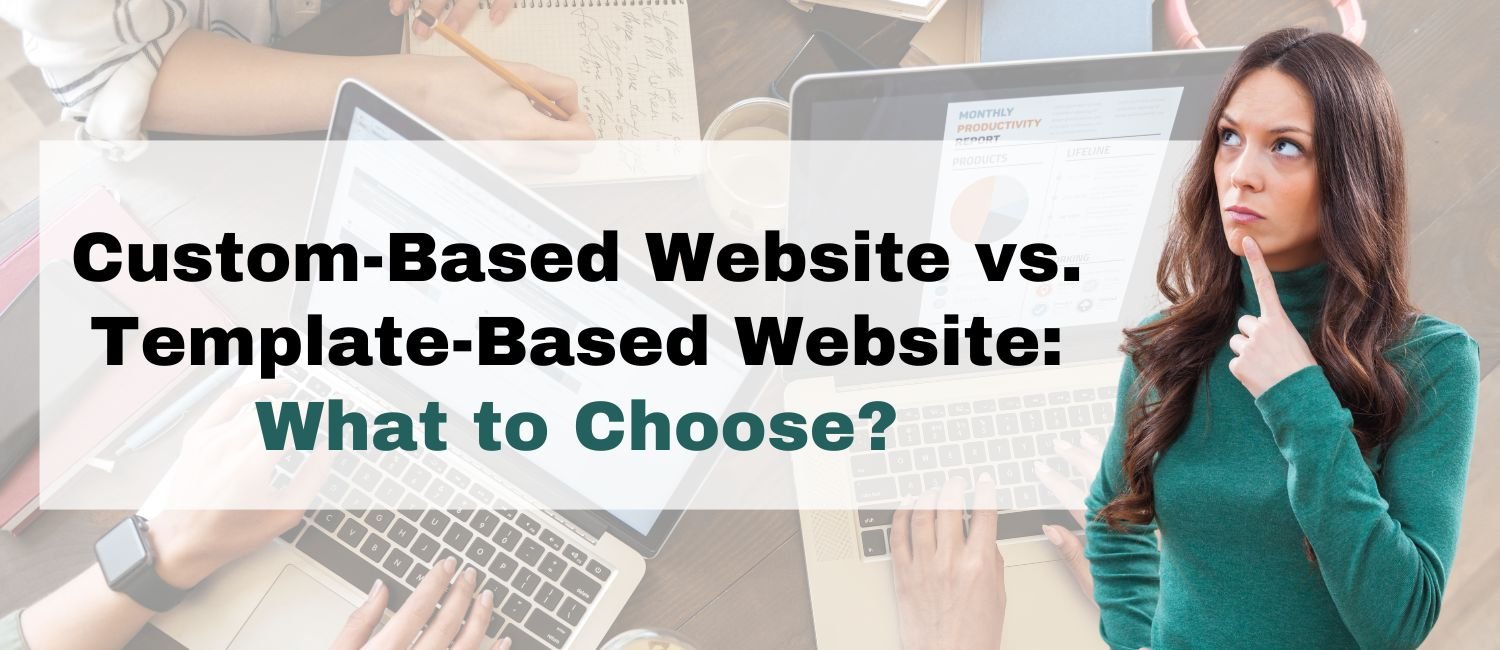Nowadays, having a website is essential for any business. However, choosing between a custom-based website and a template-based website can be a tough decision. Each option has its own advantages and limitations. To help you decide, let’s dive into the details, exploring their differences, benefits, and ideal use cases.
What is a Custom-Based Website?
A custom-based website is designed from scratch according to specific business needs. Developers and designers work together to create a unique website tailored to a company’s branding, goals, and functionality requirements.
Pros of a Custom-Based Website
- Unique Design & Branding – A custom website ensures that your brand stands out with a unique and personalized design.
- Scalability & Flexibility – As your business grows, your website can be easily scaled and modified according to new needs.
- SEO-Friendly – Custom websites allow for better optimization techniques, including clean code, faster loading speed, and tailored SEO strategies.
- Better Security – Since it is built from the ground up, security measures can be incorporated to protect against vulnerabilities.
- Custom Functionalities – You can integrate advanced features like AI chatbots, custom dashboards, or specialized booking systems based on your business requirements.
Cons of a Custom-Based Website
- Higher Cost – Developing a custom website requires significant investment due to design, development, and testing efforts.
- Longer Development Time – Unlike pre-built templates, a custom website takes more time to design, develop, and launch.
What is a Template-Based Website?
A template-based website is built using pre-designed layouts that are customizable to some extent. Platforms like WordPress, Wix, and Shopify offer thousands of templates, allowing businesses to create a website quickly.
Pros of a Template-Based Website
- Cost-Effective – Templates are significantly cheaper than custom-built websites, making them ideal for startups and small businesses.
- Faster Deployment – With a ready-made design, you can launch your website within days instead of weeks or months.
- User-Friendly – Many website builders provide drag-and-drop functionality, making it easy for non-technical users to customize their site.
- Maintenance & Support – Most templates come with ongoing support, updates, and compatibility improvements.
Cons of a Template-Based Website
- Limited Customization – You can modify colors, fonts, and images, but structural changes or advanced functionality may be restricted.
- SEO Limitations – Pre-built templates often have bloated code, which can slow down your website and affect SEO rankings.
- Generic Design – Since many businesses use the same templates, standing out from competitors can be challenging.
- Security Risks – Popular templates are often targeted by hackers, requiring constant updates and security measures.
Custom-Based vs. Template-Based Website: Real-Life Scenarios
Scenario 1: A Small Business Launching a Website
A small bakery wants to launch its first website quickly and affordably. Since it only needs a simple homepage, menu, and contact form, a WordPress template-based website would be the best option.
Scenario 2: A Growing E-Commerce Brand
An online store looking to scale requires a custom-based website with personalized user experiences, custom checkout options, and integration with multiple third-party services. A custom website ensures flexibility and better performance.
Scenario 3: A Corporate Website with High Traffic
A multinational company needs a secure and scalable website with advanced features and data protection. A custom-based website is the ideal choice due to its enhanced security and unique functionalities.
Which One Should You Choose?
- Choose a Template-Based Website If: You are a startup or small business looking for a quick, cost-effective, and simple online presence.
- Choose a Custom-Based Website If: you need a unique, scalable, SEO-friendly website with advanced functionalities that support long-term business growth.
Final Verdict
Both custom-based websites and template-based websites have their place in the digital world. If your budget and requirements are limited, a template-based website can be a great starting point. However, if you’re serious about brand identity, functionality, and scalability, investing in a custom-based website is a smart choice for long-term success.
Need expert advice on choosing the right website solution for your business? Contact us today for a free consultation!

